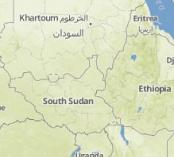12/02/2014

Since December 2013, when the conflict began, the South Sudan Red Cross (SSRC), the ICRC, the International Federation of Red Cross and Red Crescent Societies and other Movement partners have been working hard to provide relief to hundreds of thousands of people in dire need. To make matters worse, in May 2014, there was an outbreak of cholera. We asked Veronica Kenyi, SSRC health manager, to tell us how her National Society was dealing with this exceedingly difficult situation.
How is the violence in South Sudan affecting the delivery of health care?
Health facilities are being looted and burnt down, and medical equipment and supplies stolen; staff and patients are denied access to health-care facilities; and deliveries of medicines are often blocked. Many health-care workers are afraid to come to work. The result of all this is that patients suffer even more.
With regard to delivering health care, what are the main challenges confronting Red Cross workers and volunteers?
The poor security conditions, to begin with. That is a major problem. Weapon bearers often know nothing about the rights of health-care personnel, that they are protected by law, for instance. During crises, weapon bearers target, and even occupy, health facilities. Since health-care workers are fleeing their posts, the Ministry of Health has to depend on first-aid volunteers. You can imagine how this affects the quality of the health care provided. Bad roads and limited means of transport make it even more difficult for people to get access to health care. Ethnic tensions are a major obstacle as well: sometimes, the ethnic identity of volunteers is a more important consideration than the fact that they are health-care providers.
The full article continues at https://www.icrc.org/en/document/health-care-danger-we-still-need-do-lot-advocacy on the ICRC website.

